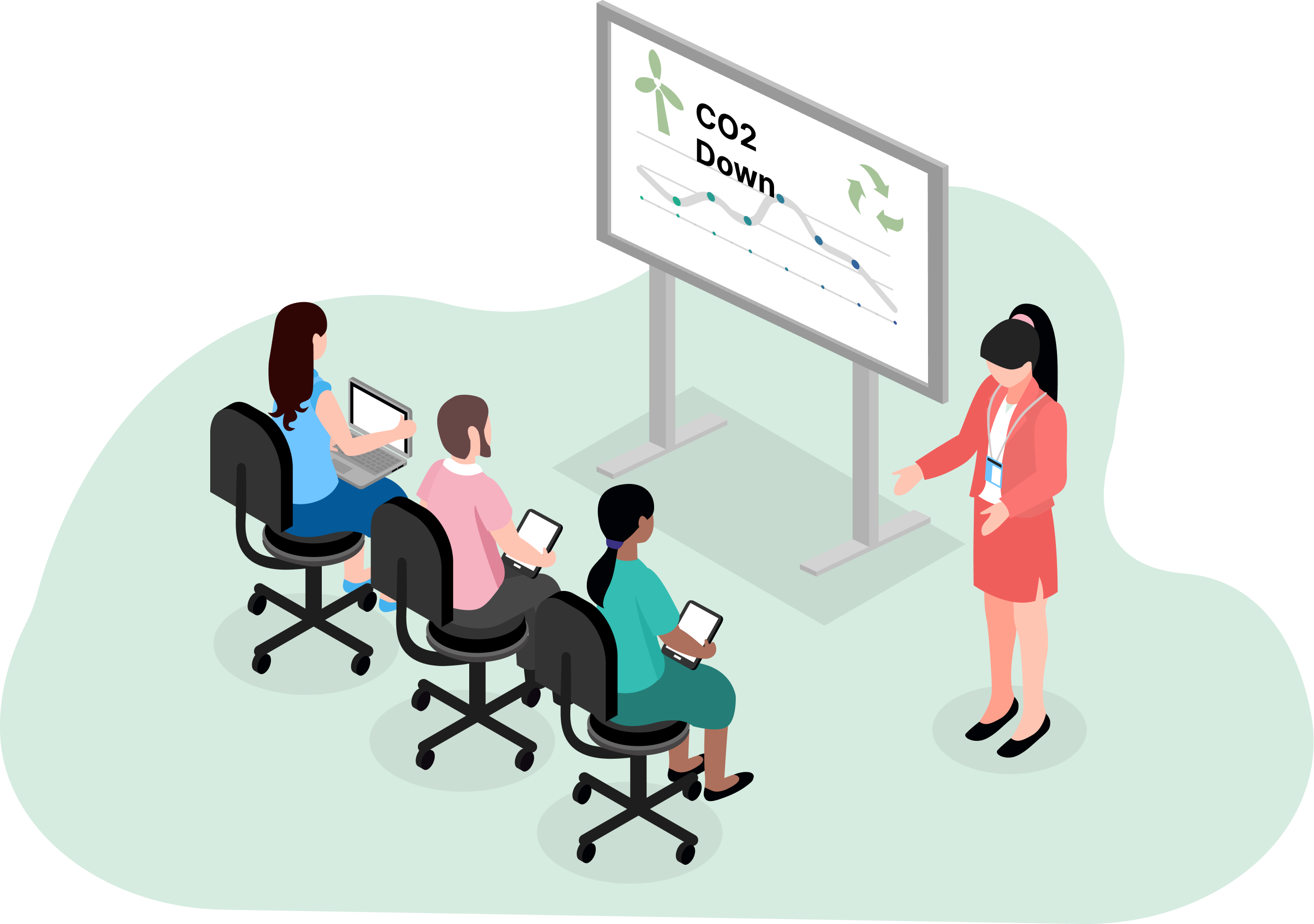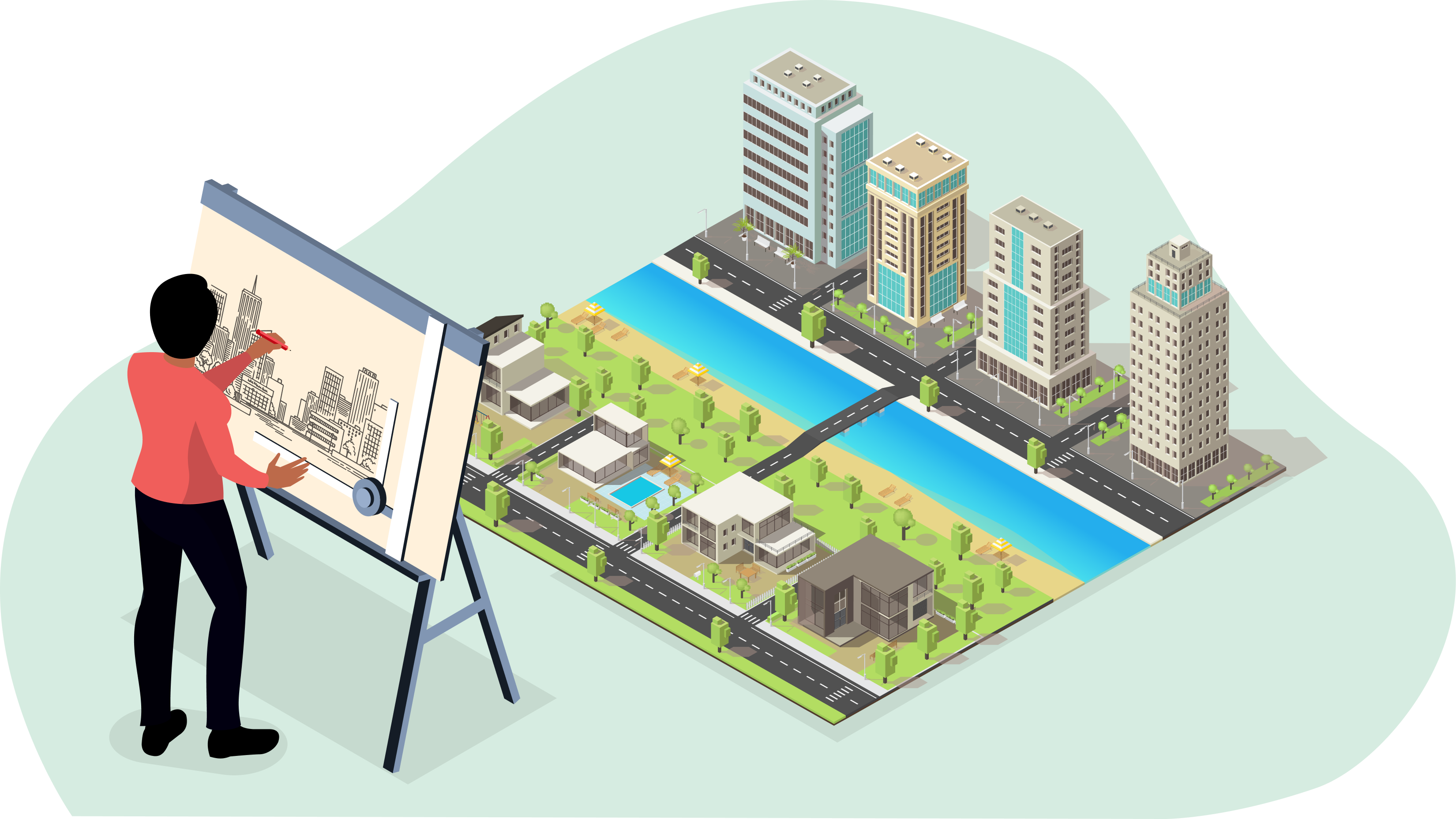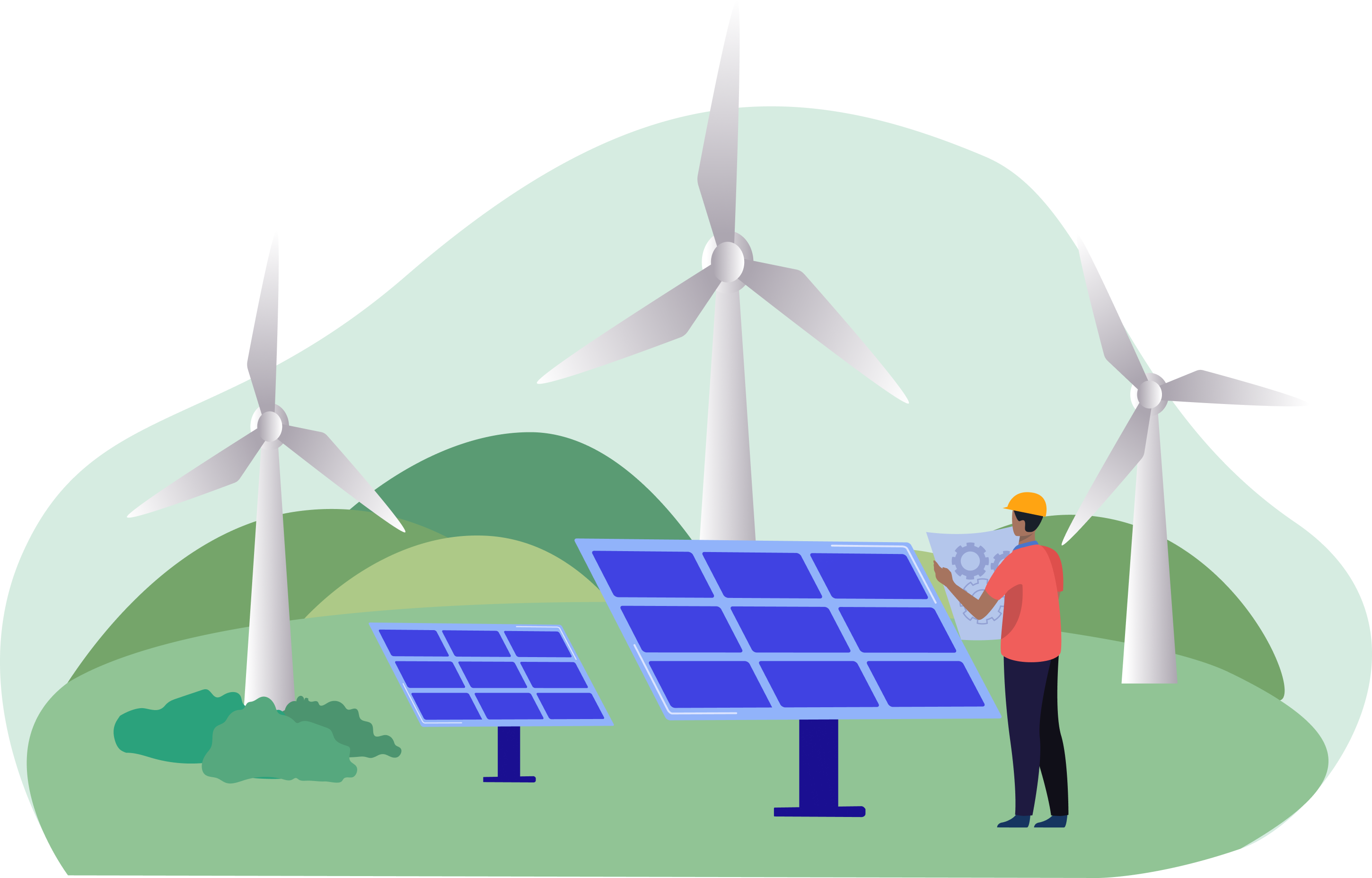
Environmental Engineers use knowledge from Engineering, Soil Science, Biology, and Chemistry to develop solutions that will help improve the environment. They may choose to focus on recycling, public health, and air pollution control.
- Create designs that reduce negative impacts on the environment.
- Provide environmental advice to ensure compliance with Singapore laws and regulations.
- Lead and participate in initiatives to improve the environmental performance of buildings and facilities.
- Interact with internal units and government agencies to address environmental issues, regulation changes, and regulatory report submissions.
- Perform unit optimisation, troubleshooting, and studies on Wastewater Treatment Plant development.
Note
Environmental Engineers have developed Bioremediation techniques to clean up contaminated soil and groundwater. These methods transform hazardous waste sites into safe land.
Nature of work
As Environmental Engineers, you’ll report to work at different places like your client’s office, field site, company office, or laboratory!Key advice
You should master GIS and CAD software, essential tools for designing sustainable solutions and conducting environmental impact assessments.-
Entry RequirementsEntry Requirements
- Minimally a diploma or degree in Environmental, Chemical Engineering, General Science, Life Science, Biotechnology or equivalent.
- To be an Environmental Engineer in Singapore, you have to obtain a degree or diploma that is recognised by the Engineering Accreditation Board of Singapore. You should do some additional research to find out more about which qualifications are accepted or rejected, and why!
- Having 1 to 3 years of relevant working experience is an added advantage. Examples include environmental testing, assessment and consultancy in laboratories, or field surveys.
- Familiarity with an advanced knowledge in Mathematics and Science is an added advantage.
-
Possible PathwayPossible Pathway
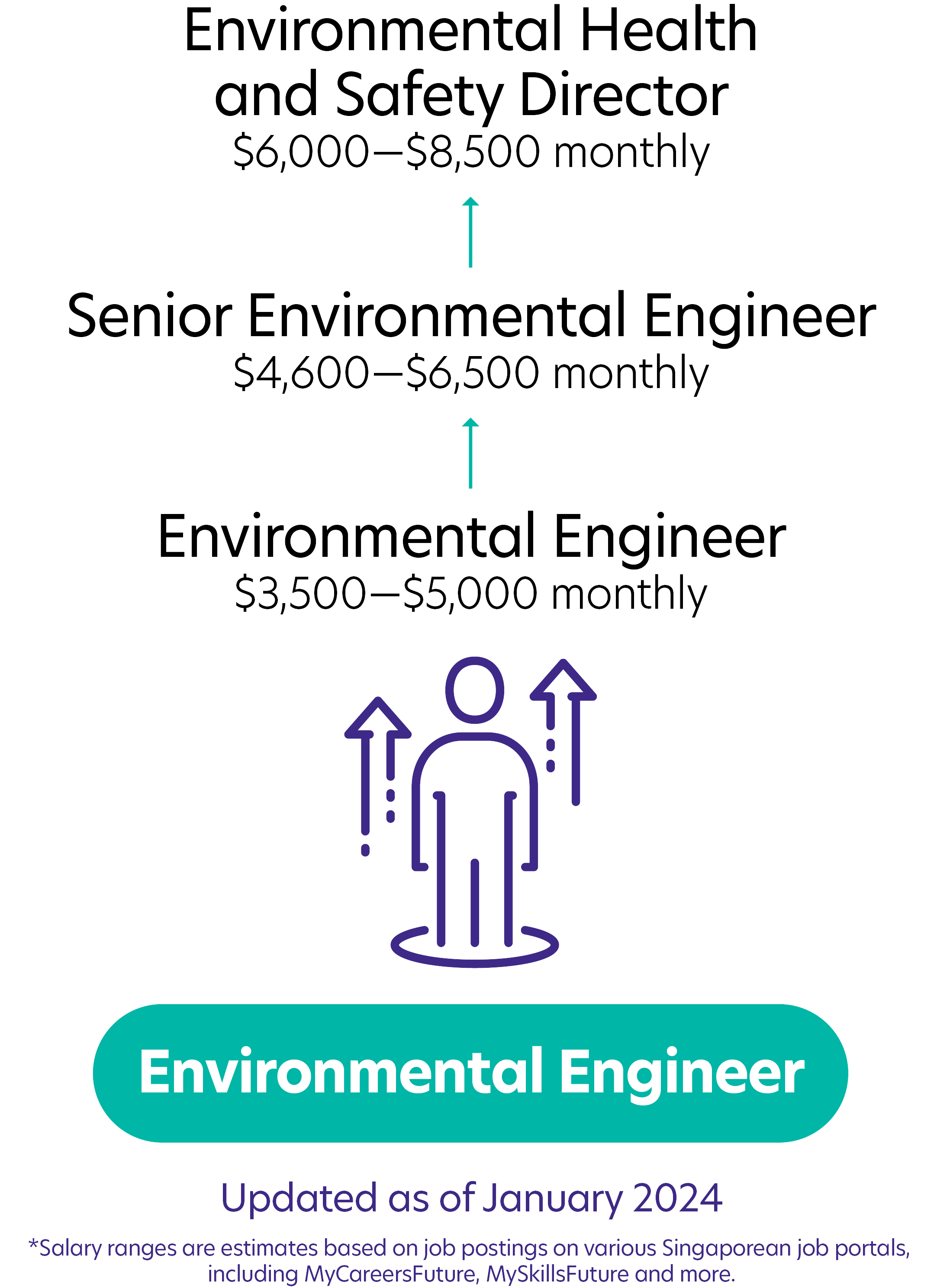
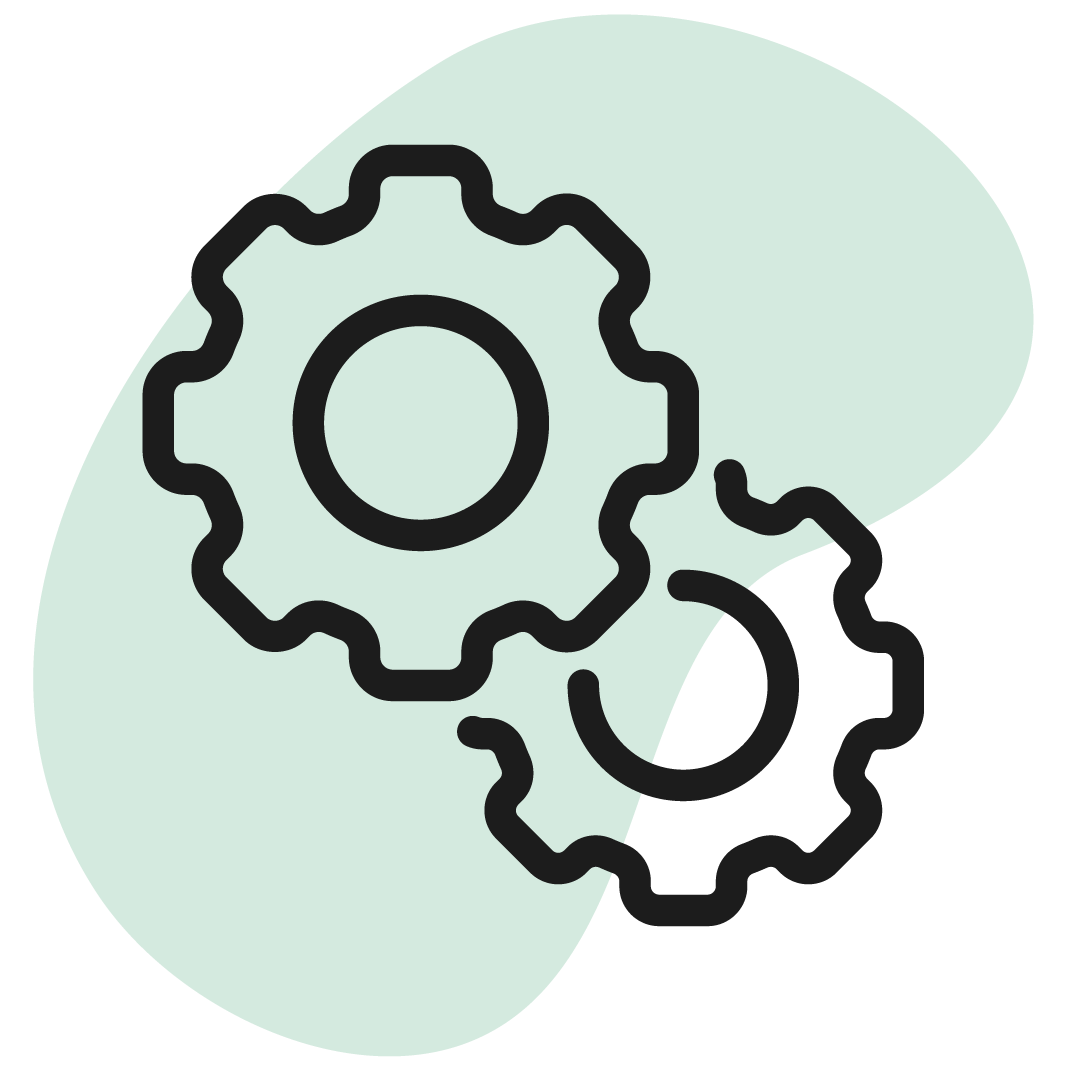 Hard Skills
Hard Skills
Knowledge of ISO17025 (testing and calibration standard) and/or other approved standards
Familiarity with ISO17025 standards, ensuring compliance and quality in projects.Proficiency in writing technical reports
Creating detailed reports, and documenting findings and recommendations from projects.Proficiency in Microsoft Office Suite
Using Microsoft Office tools for data analysis, presentation and documentation.Teamwork
Ability to collaborate effectively with colleagues and stakeholders on diverse environmental projects.Analytical mindset
Strong analytical skills for assessing environmental data and solving complex environmental challenges.Written and Communication Skills
Convey complex environmental concepts clearly and effectively in both written and verbal forms.Related Job Roles
Explore Other Programmes
Browse AllYou have bookmarked your first item!
Find it in My Discoveries with insights on your interests!
